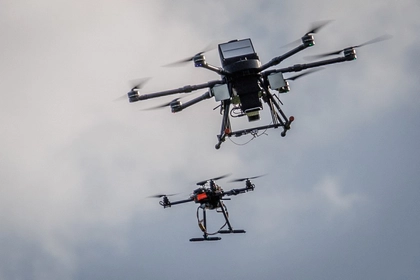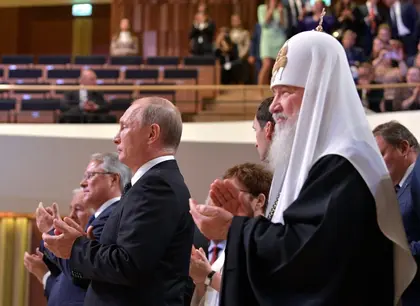When I was a student, then analyst of Soviet affairs and journalist in the late 1970s and 1980s, we did our best to understand what was happening in Soviet politics, and especially in the Kremlin. We based our informed guesswork on whatever details were emerging from that closed, totalitarian, society.
In those days, up to the late 1980s, there was not only an Iron Curtain separating the Soviet Union and its “communist” conquests in East Germany, Poland, and Czechoslovakia from the Western world, but also the secrecy within the Soviet system in the USSR itself.
Remember, or if you are much younger, be aware, that in those days, news of what was happening in the Soviet domain was strictly controlled and filtered by the Soviet ideological and censorship apparatus in Moscow. Western journalists, restricted to operating from the Soviet capital, were severely restrained. They were forced to reconvey to the outside world only what they could make sense of from what the official media were putting out and what they could observe themselves.
So, reporting and analysis was based on reading between the lines, rumors, hearsay, and drawing conclusions from the apparent semblance of what was seen to be transpiring – ultimately on informed speculation.
Kremlinology – trying to guess in an intelligent manner what was actually happening at the apex of the Soviet system – was the only tool we had.
This ranged from watching to see who was standing next to whom on the mausoleum on Red Square closest to the Soviet leader of the time, thereby monitoring any changes in the official pecking order, to monitoring if any publications of a liberal sort had been allowed to appear. It also involved paying attention to any rumors circulating about scandals or the ill health of the Soviet leaders and their potential successors.

Ukraine Reportedly Strikes 4 Alcohol Distilleries in Russia in Drone Attacks
And today, given the increasingly closed, secretive, nature of Putin’s “resurgent” autocratic Russian regime more than 30 years after the Soviet system collapsed, we have also been forced to revert to the methods and legacy of the school of Kremlinology.
I remember writing for the British press in the early 1980s, particularly The Spectator, from a Kremlinological perspective about the ailing Brezhnev, who might succeed him, and the scandals in Moscow linked to the succession question at that time. Then about his successors, Andropov, Chernenko (anyone remember them?), and finally Gorbachev.
Then, there was a hunger for informed, specialized analysis and guesswork. Many of my former Kremlinologists, perhaps even the majority, with their Moscow-and Russo-centric approaches, managed to sense what was happening in Moscow itself but remained partly blinkered and missed the boat. They ignored, or underestimated, the real nature of the Soviet imperial system and the pent-up forces that wanted to end it. When the USSR finally fell apart at the end of 1991, with Ukraine assuming the role of the main battering-ram, they, along with some Western leaders who should have been better informed as to what was happening, were caught largely unawares and dumbfounded.
So, the shortcoming of most of the Kremlinologists was to limit their focus to the Kremlin, Moscow and Russia. For all their merits, they failed to grasp the broader picture, draw the right conclusions and change their analytical spectacles.
Today, Kremlinology is being revived and once again being relied upon. Today, its modern-day exponents face the following questions:
Is Putin really seriously ill? If so, is he still in control? Is it him we are seeing, or his doubles? Is there a behind-the-scenes battle over his succession? Who could take over and with what consequences? What is the extent of the supposed infighting at the top precipitated by Russia’s military failure in Ukraine and the political and economic consequences? Behind the bravado, to what extent is Russia faltering and where is it heading?
Drawing on the lessons from the past, it is important to maintain focus on the Kremlin, but not to overlook what is happening further afield. This includes the degree of Ukraine’s resistance and determination not to allow Russia to have its way; and, the West’s fundamental break with its customary policy towards Russia and its increasing commitment to support Ukraine “through thick and thin.” And not underestimating the potential for the forces in Belarus, and even Russia itself, to declare at some stage, that enough is enough.
Kremlinology boiled down to trying to predict if there would be a change of leadership at the top and what impact this might have. In essence it precluded anticipating regime change and system-change. Today we need to focus on the prospects not only for a change of leader but whether the Russian home grown fascist system with its inherent despotism, chauvinism, expansionism and paranoid need to persuade itself that Russia is a great power and unaccountable to anyone but itself, can be changed.
If Russia will survive in this or a similar form, what will be the consequences and challenges for the Western world, let alone its neighbors? And there is an important lesson to be remembered from the past.
When fighting and eventually defeating Hitler, the victorious Allies realized that a change of leadership in Germany was not sufficient to ensure peace. They grasped that it would be necessary to change the very mindset that had taken hold of so many Germans permitting the Nazi savagery. Hence, the defeat of Hitler was followed by a deliberately imposed program of de-Nazification of Germany to purge and preempt.
Unfortunately, when the Soviet Union collapsed neither the more liberal, nor even those calling themselves democratic, Russian leaders considered it important to face up to their totalitarian communist and imperial past and to try to heal and transform society. By fully exposing the truth and bringing those responsible for crimes against their own people and the outside world to justice.
Looking back, Kremlinologists will acknowledge that the demise of the Soviet system was precipitated by changes in the Kremlin and its mismanagement of the challenges at hand, but at the end of the day brought to bear by those forces seeking to end the Soviet imperial system despite the West’s failure largely to grasp this critical factor.
Western leaders and “experts” prematurely sighed relief that the Soviet system had vanished, that the Cold War was over, and that the semblance of normalcy could be restored in international relations. They did not take into account the long traditions of Russia’s history and the mentality of its population and therefore to anticipate the tremors and tectonic shifts that were only to be expected at some later stage after the giant geopolitical earthquakes of 1989-91 that ended Russian communist hegemony in eastern and central Europe and then with the USSR itself.
Today Putin himself is acknowledging and stressing that the Soviet Union was indeed the continuation of the Russian empire in another form and that he is determined to ensure the prolongation of the idea of a great, one and indivisible “Russia”. Few Kremlinologists would have been prepared to stick their necks out and point to that inherent element of continuity between the changing forms of “eternal” Russia that its current leader is so eager to emphasize.
So today, we need a new Kremlinology built on the lessons of the past, monitoring the Kremlin, but sensitive to broader realities and the longer-term challenges they pose.
You can also highlight the text and press Ctrl + Enter






